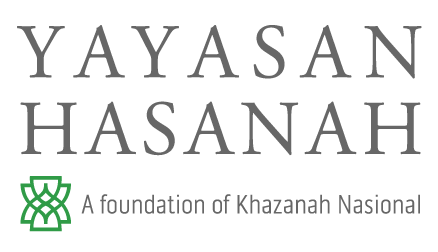Hasanah collaborates with partners to deliver education programmes to reduce carbon footprints and improve waste management across 88 schools in Malaysia
Yayasan Hasanah (Hasanah) has expanded its support on environmental education outreach efforts in addressing carbon footprint and waste management to Northern Peninsular Malaysia, where it has reached out to 54 schools across various projects, culminating in a total of 88 schools impacted nationwide.
Key to this effort in the north are ‘The Zero Waste Project’ by the Consumer Association of Penang and the ‘Sustainability and Green Technology through iG-HOME (iG-HOME)’ project, by PINTAR Foundation and Universiti Kebangsaan Malaysia (UKM). Both programmes are currently being implemented in primary and secondary schools in Kedah.
The introduction and development of these efforts were signified by a visit by the Hasanah team and its stakeholders to Sekolah Kebangsaan (SK) Ambangan Heights, Sungai Petani which is involved with The Zero Waste Project. During the visit, participants shared various ideas on how they plan to optimise consumption and achieve zero waste.
The Hasanah team also visited Sekolah Menengah Kebangsaan (SMK) Muadzam Shah, Kota Sarang Semut, one of the key participating schools in the iG-HOME programme. Here, students showcased their ideas for creative and practical application of environmental technology for sustainable living, both at home and at school.
Speaking at the school visits, Shahira Ahmed Bazari, Managing Director of Yayasan Hasanah said, “Based on our experience of delivering programmes with young people, we find that the young generation today care deeply about the environment and they are also the most proactive in taking initiatives to make a difference for the future. This makes them the perfect group to drive our environmental programmes, which could also lead to positive behavioural change to the wider community. Hasanah believes that meaningful impact only happens over time and we are confident that through efforts of these young people, Malaysia will be well on its way of achieving its green growth state aspirations.”
Both programmes were funded by Hasanah as part of its aim to raise awareness amongst students, their families and local communities about waste management, sustainable consumption and living.
Puan Noraidah, a teacher at SK Ambangan Heights and a key advisor of The Zero Waste project said, “Thanks to The Zero Waste Project, I’ve noticed significant improvements in my students’ consciousness of keeping their surroundings clean. Beyond that, the programme has been very useful in teaching the students how to distinguish between recyclable and non-recyclable items and how to dispose the latter in a safe and sustainable manner. I am very pleased with these developments and I hope that other schools all over Malaysia will consider making this programme a part of their activities.”
Syaida Amni, a Standard 5 pupil at SK Ambangan Heights who is also a key participant of the programme, said, “I’ve learned how to reuse the things I would have otherwise thrown away into things I can use daily. The programme has taught me that it’s important to keep my environment clean and green, for now and the future.”
Puan Norzita Abu Bakar, a teacher at SMK Simpang Kuala and advisor to the winning team of the iG-HOME Challenge said “I am proud of the team for winning this prestigious challenge. More than coming up with the creative idea, the team demonstrated a quick ability to learn about the different components of recycling, waste management and sustainable living to the point where they could even develop their own compost and materials for biogas creation, something that we wouldn’t think that students at their age would be capable of. Most importantly, they now care deeply about their environment and the future, and are excited to be advocates for sustainable living to their peers and communities.”
Nurul Afina Juhaimi, a Form 3 student at SMK Simpang Kuala and one of the students from the winning team said, “I truly enjoyed learning about the different components of waste management and sustainable living, such as creating compost with organic materials, developing the rain catchment house and landscaping our iG HOME. The most interesting part is we even learned how to make functioning lights using just plastic spoons. I am pleased that we had the opportunity to be a part of this project and to bring these unique concepts to life in our school. I truly hope that more students would take time out of their regular schedule to learn more about preserving our environment.”
In addition to the programmes in Kedah, Hasanah is also introducing a new educational programme in the Klang Valley with Yayasan Hijau. The programme which is organised in collaboration with University Sains Malaysia (USM) is being conducted to 25 schools adjacent to Program Perumahan Rakyat (PPR). It aims to reduce energy consumption, improve waste management, and introduce water conservation activities.
